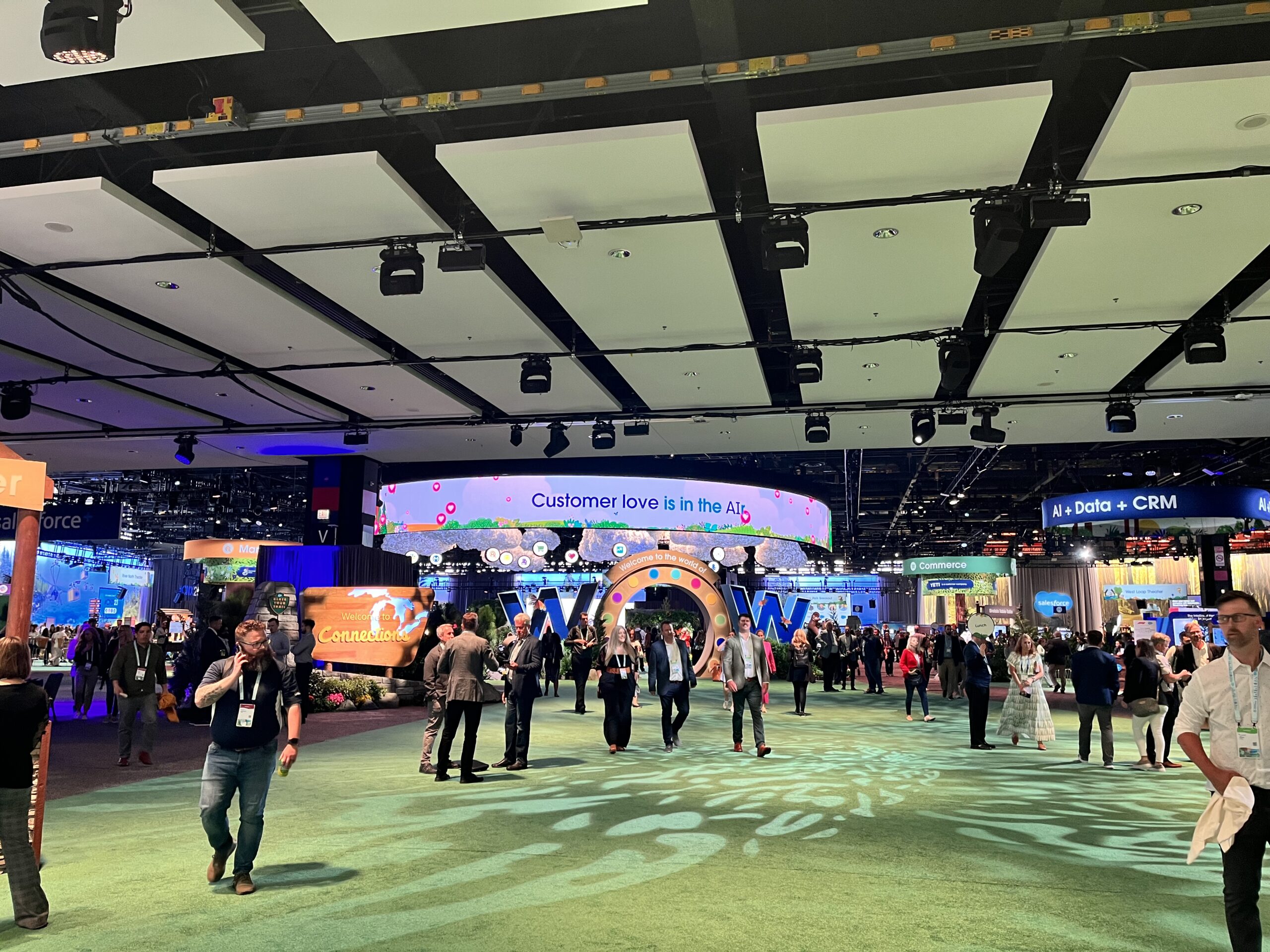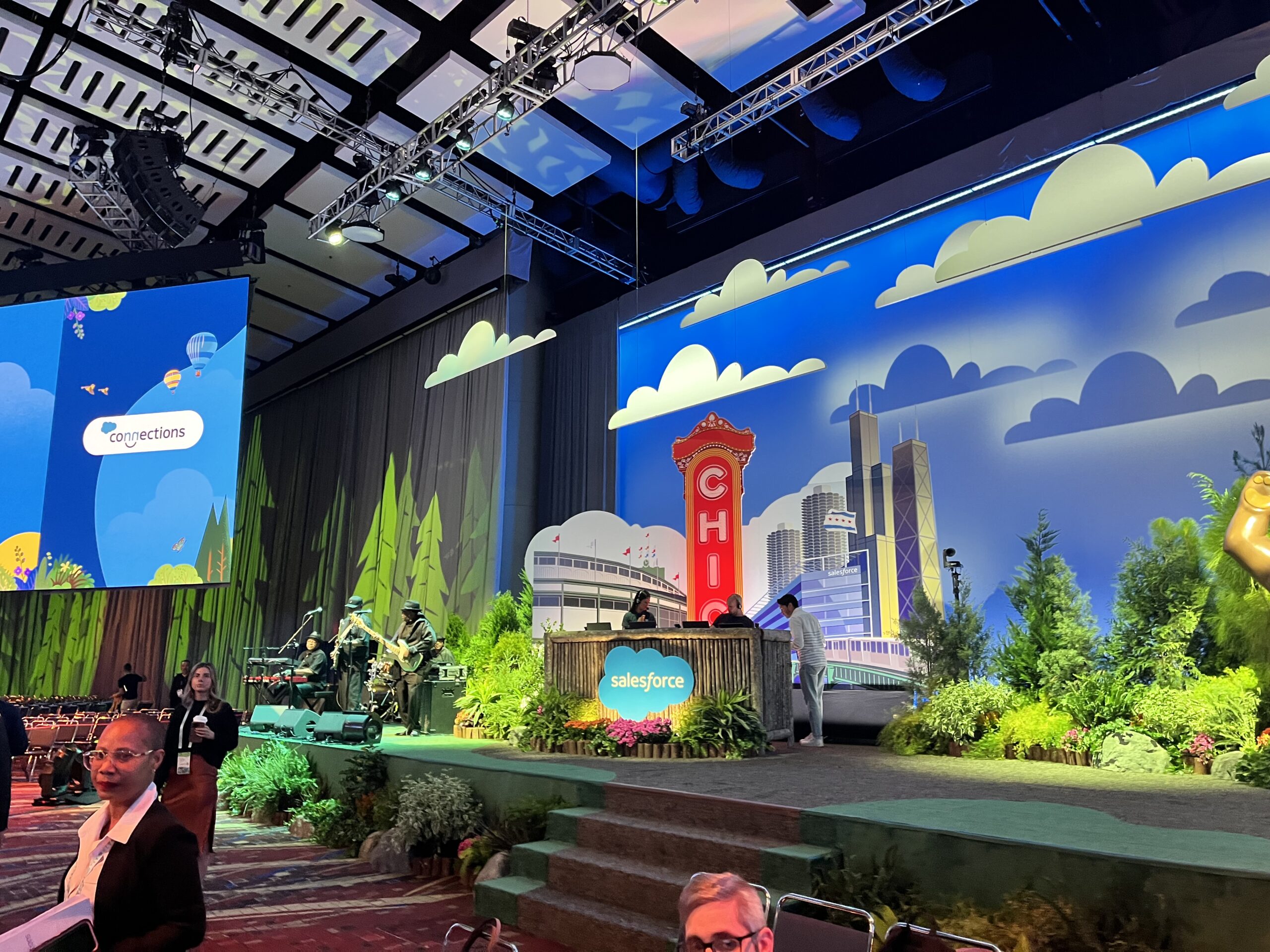If you’ve ever attended a Salesforce event, you know there’s never a dull moment—and Salesforce Connections 2023 did not disappoint. Our team came well rested and prepared for a conference full of insights, innovations, and product announcements centered on Salesforce Marketing Cloud. Attending and keynotes, making the most of networking opportunities, even just trying to find one another between sessions—it all made for a bit of chaos. But that just made trading notes and stories that much more rewarding. Below are some of our top takeaways.



The Age of AI
At the end of last year, the worlds of business, technology, and digital marketing were upended by the launch of ChatGPT. Walking into the convention this year, the message was immediately clear: AI is to stay. Customer success has always been a core value of Salesforce and transformative stories leveraging Salesforce’s new AI offerings were on full display. Rossignol and General Mills demos showed actionable, data-driven insights, auto-generated personalized messaging available to marketers and service agents, and automated workflows and seamless integration across Salesforce’s unified Customer 360 ecosystem.
Powering these insights and experiences are Salesforce’s generative AI offerings: Sales GPT, Service GPT, Marketing GPT, Commerce GPT, Tableau GPT, and Slack GPT. A partnership with OpenAI—plus integration with Salesforce’s own AI models—means marketers will have consistent touchpoints with their customers that drive engagement, loyalty, and growth. The convergence of these generative AI tools and CRM fall under Einstein GPT— collectively, they’re part of Saleforce’s AI Cloud architecture.
The Importance of Trust
The underlying ethos for these GPT rollouts is the GPT Trust Layer. Responsible and ethical use of AI at an enterprise scale has tenets across security, privacy, compliance, and data residency, providing a trusted AI approach for customer solutions. This includes being transparent and accurate while keeping customer data safe.
One example: a product-generated description in Marketing GPT. The request leverages the LLM, or large language model—the foundation of GPT—and its weighted AI neural network accesses the data in a way that is always shifting and changing, but means it never leaves the Salesforce Cloud products where it’s stored. The separation from the LLM maintains compliance while harnessing the power of generative AI.
The Evolution of Data Cloud
Underneath the AI-powered GPT products is the CDP and real-time engine platform Data Cloud—unifying data from any source. From predictive analytics in Tableau to tailored experiences across channels leveraging Marketing Cloud Personalization, Data Cloud centralizes insights, recommendations, and customer profiles in one spot, where it’s all available at a marketer’s fingertips. This builds on the way CDP was championed at Connections 2022, providing more functionality across the landscape of Salesforce cloud products.
Automated experiences powered by intelligence and Data Cloud not only serve an enhanced journey for the customer—they increase ROI by saving time and resources. This is a world where manual pulls from a BI tool are now executed and activated with real-time data to Customer 360.
Simplifying Personalization
Our very own Dave Woodbeck presented at Connections this year, giving BOCO’s point of view on demystifying personalization with a roadmap to get started. Customers expect to be recognized and want help throughout their buying journey. Guiding customers through personalized experiences leads to higher satisfaction, captures incremental revenue, and ultimately increases ROI.
Building a successful personalization framework starts with thoughtful journey mapping and uses cases that ladder up to business objectives. Listen to signals and understand customer profiles which are inputs to a smart content taxonomy. Get the right team in place—customer experience lead, solution architect, functional platform experts, etc.—to support design and implementation.
Constructing the personalized experience doesn’t need to be over complicated. Start with defining attributes and affinities customers care about and content taxonomies that support various lifecycle stages. At the end of the day, it’s about putting the right content in front of the right user to build stronger customer relationships.
Final Thoughts
There’s always a feeling of excitement in the air whenever you step on the Connections “campgrounds.” The event fosters innovation and collaboration between customers and partners alike—and as a leading customer experience company and Salesforce partner, we love the energy. Our biggest takeaway this year? The future is bright for the delivery of incredible, personalized experiences—and our Salesforce Marketing Cloud implementation team couldn’t be more excited.


